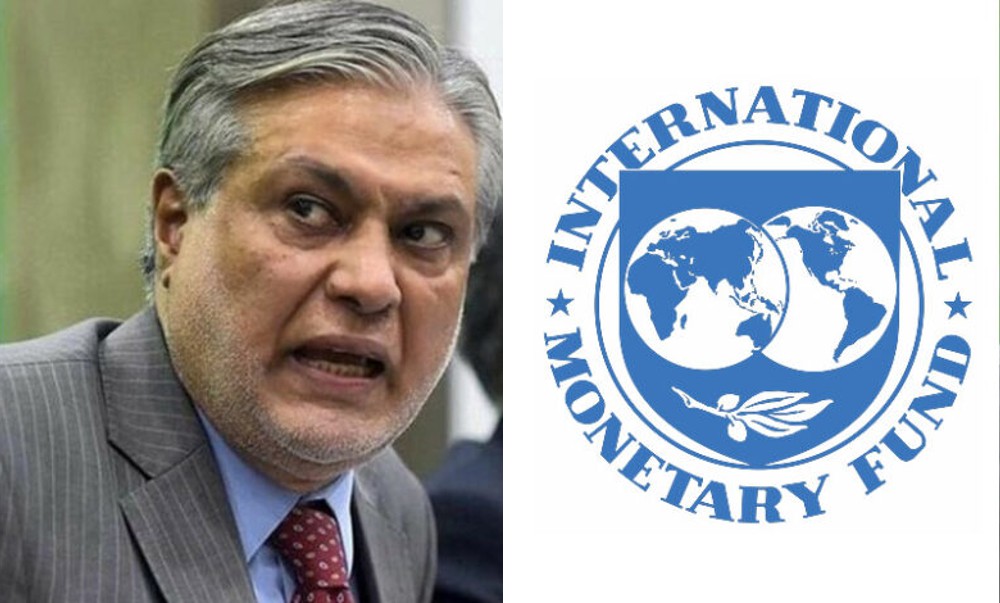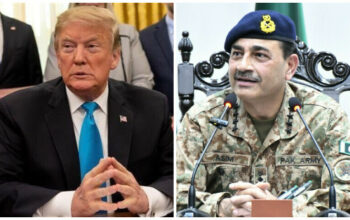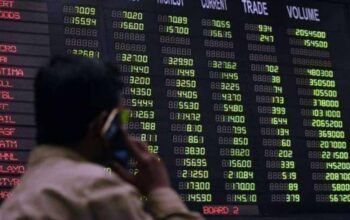The IMF is in town, review talks are on, and the common Pakistani is waiting for Finance Minister Ishaq Dar’s other shoe to drop.
By Muhammad Ali
ISLAMABAD: As the long-awaited field mission of the International Monetary Fund (IMF) arrives here Monday to hold threadbare talks with the authorities over the 9th review of the stalled Extended Fund Facility (EFF), the common Pakistani is in suspense for a hike in both electricity and gas prices.
Finance Minister Ishaq Dar conceded on two of his four sticking points with the IMF late last week to pave the way for the mission’s fielding.
Last week, the authorities allowed the official exchange rate of the rupee to float free, allowing the local currency unit to slide beyond PKR 250 a dollar after months of insisting the rupee is undervalued against the dollar and its fair value is under PKR 200 a dollar.
Over the weekend came a PKR 35 per litre hike in petrol and diesel prices as the authorities allowed consumers to bear fuller brunt of a petroleum development levy (PDL) after months of both Prime Minister Shehbaz Sharif and Dar insisting for months they were not prepared to shift the burden to the common Pakistani.
But the provisions of the contract signed by Pakistan with the IMF for the EFF also commit the country keeping budget deficit in check and hiking power and gas prices to tackle a crippling energy sector circular debt.
The agreement for the EFF (for about USD 6 million) was signed in July 2019 on the watch of former Prime Minister Imran Khan.
In August 2022, as PM Sharif’s first finance minister Miftah Ismail completed the combined 7th and 8th review, the Fund extended the EFF up to end-June 2023 and enhanced the magnitude of financing under the program to around USD 7 billion.
Dar’s unwillingness to match the words of the compact with concrete action led to a delay in the 9th review, originally due in November 2022. The Fund only fielded the review mission after the government delivered on exchange rate and PDL.
The review mission will have about ten days (from January 31 to Feb 9, 2023) to conclude some of the toughest negotiations with the Pakistani authorities, who believe that given how tough the economy already is, this is no time to put the masses to further pain.
Hinged on the successful completion of the review subject to the approval of the IMF’s Executive Board is the release of a USD 1 billion tranche of financing for the country at a time when our foreign exchange cover has grown precariously thin.
Even more importantly, the IMF’s blessing is necessary to allow Pakistan’s struggling economy access to bilateral and commercial financing. However, the actions called for by the IMF will test the limits of the patience of the masses, already grunting under massive inflation.
Independent economists believe the recent rupee free float and the hike in petroleum prices are sure to propel CPI inflation, already clocking 25 to 26 percent for the first half of the current fiscal, on the wrong side of 30 percent.
An official speaking on condition of anonymity in view of the sensitivity of the matter late Sunday confirmed the developments were linked with the government’s dealings with the IMF – and that government may have to do more – including a minibudget, to satisfy the review mission.
The IMF asks the government to additional revenues to the tune of PKR 600 billion in order to meet the agreed budget deficit target for the current fiscal.
The government had fixed the budget deficit target of 4.9 percent of GDP for the current fiscal year while it is eyeing to achieve a primary surplus of 0.2 percent of GDP, equivalent to PKR 152 billion for the ongoing financial year.
Pakistan and the IMF will have to reconcile on ascertaining the exact level of fiscal slippages which will help to finalise the additional taxation measures to fill the fiscal gap.
The Federal Board of Revenue (FBR) has estimated that it might take additional taxation measures of PKR 200 billion through the minibudget.
As regards the PDL, the government is now charging PKR 50 per litre on petrol and PKR 40 per litre on diesel. With help of these two petroleum products which possessed a major share in consumption, it could fetch PKR 1.5 billion on a per day basis.
This means the government could fetch PKR 225 billion in revenues through PDL in the next five months (Feb-June) if the current rates are maintained. The government still has an option to jack up the PDL on diesel fuel by PKR 10, which may be exercised to further increase collection from the head.
As well, the government is under the gun to hike electricity tariff in the range of PKR 7,50 per unit to PKR 12.50 per unit provided it does not raise any further subsidy.
The IMF has expressed its annoyance over unfunded power sector subsidies. The Fund is also asking the authorities to book any circular debt in excess of the target as primary deficit.
The IMF also asks the government to raise the gas tariff to fight the monster circular debt. The OGRA has already recommended a hike in gas tariff in the range of 74 percent. However, it remains to be seen how much the government implements the OGRA recommendations.
Once the review mission and the Pakistani authorities reach a staff-level agreement on the Memorandum of Financial and Economic Policies (MEFP), the deal will be tabled for the approval of the IMF executive board.
Copyright © 2021 Independent Pakistan | All rights reserved




